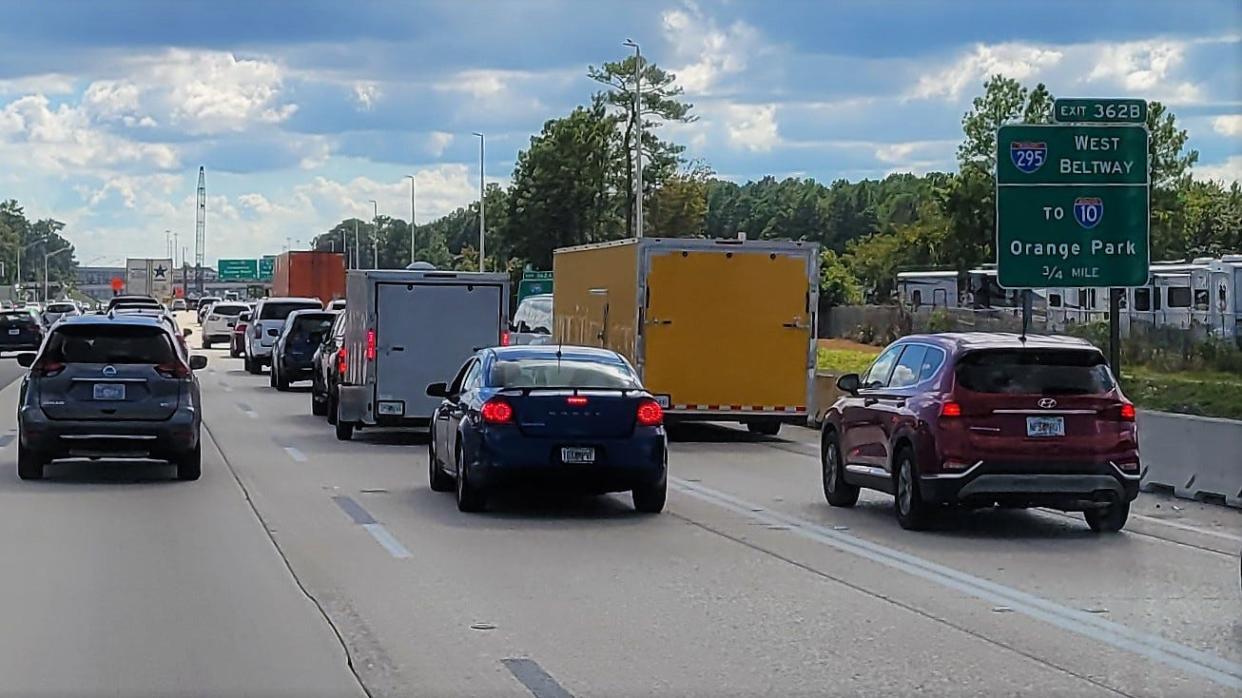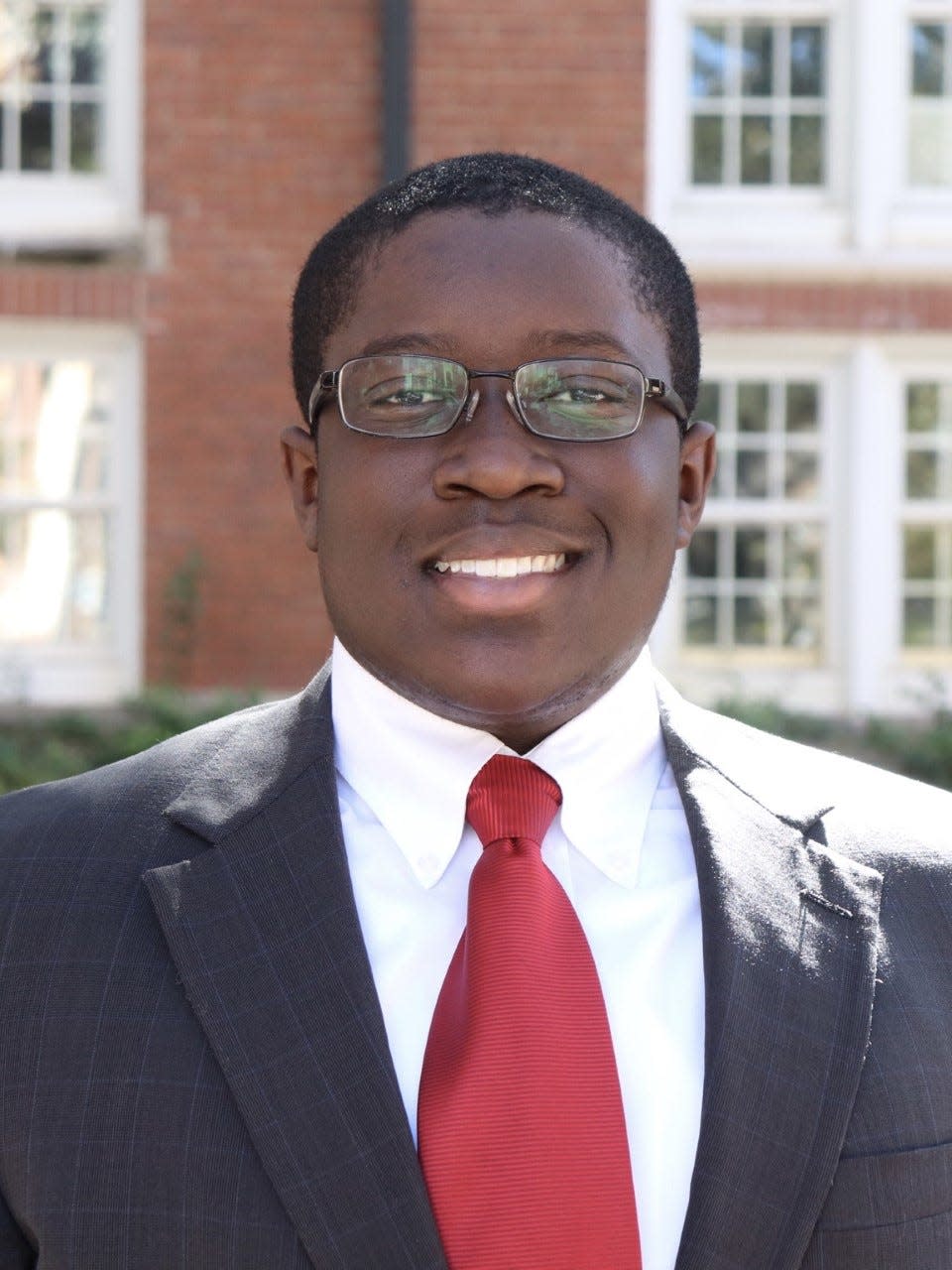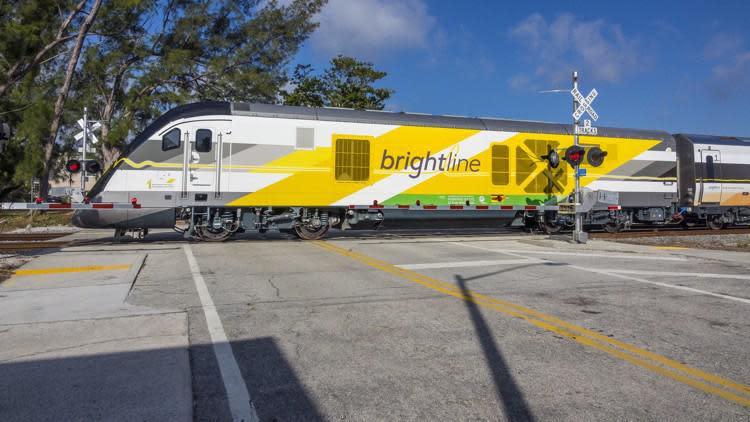Guest column: Another highway expansion isn’t going to help traffic

The Florida Department of Transportation (FDOT) held a public hearing on Jan. 13 about its plans to expand I-95 between I-295 and Atlantic Boulevard from six lanes to up to 12 lanes, doubling the width of the highway. As part of the Planning, Design & Engineering study for the project, FDOT cites the amount of time that has passed since the previous widening as well as the future possibility of congestion as the region continues to grow. FDOT engineers claimed that state law mandates 12 lanes in the Preferred Alternative.
A lesson that has been learned in cities across the United States is that one cannot simply expand highways indefinitely to reduce traffic. The principle of induced demand demonstrates that more highways will attract more drivers, which will result in more traffic. Houston, Texas is home to one of the world’s widest freeways with 26 lanes, and yet every day it is often just as congested as any smaller highway, if not more congested by sheer volume.

This is a lesson that has already been learned in Florida multiple times before. In the late 1980s, FDOT embarked on expansions for I-95 and the Florida Turnpike in South Florida, and as a mitigation strategy created the Tri-Rail commuter service. In 2019, Tri-Rail carried more than 4.4 million riders, taking the equivalent of tens of thousands of cars per day off the region’s highways. In the 2010s, as FDOT prepared for its ongoing expansion of I-4 through Orlando, it created the SunRail commuter line. Prior to the pandemic SunRail carried more than 1.2 million riders.
The benefits of building alternative transportation options like commuter rail along major corridors are well known. One of the most significant is the ability to reduce traffic. By removing cars from the road entirely, it is possible to increase overall throughput, improve level of service, and reduce travel times without the continued expense of highway expansion. Commuter rail means that more people will arrive to their destination on time.
Most importantly, commuter rail could be completed at lower costs than further highway expansion. The current plans just between I-295 and Atlantic Boulevard are anticipated to cost over $451 million, without accounting for the necessary right-of-way purchases or design and planning costs.

A recent study by the Jacksonville Transportation Authority found that a commuter rail line stretching from downtown Jacksonville to downtown St. Augustine, with stops along U.S. 1, would cost just $395 million, providing enormous amounts of capacity at a fraction of the cost, while expanding I-95 such a distance could prove to be a billion-dollar boondoggle at total taxpayer expense.
Critically, there has been no better time for Jacksonville to embark on building new transportation alternatives.
The infrastructure bill passed by Congress and signed by the President last year includes more than $39 billion for transit, funding that Jacksonville could use to invest in developing a system with reduced risk to local taxpayers. Partnerships with private companies like Brightline, which already holds the rights to passenger service between Jacksonville and St. Augustine for future high-speed rail, could further reduce the costs to taxpayers.
Albert Einstein once said that the definition of insanity was doing the same thing over and over and expecting a different result. For decades, FDOT has repeatedly expanded highways with the expectation of a result besides more traffic.
By choosing the No-Build Alternative on I-95 and rejecting a supersized highway for commuter rail, Jacksonville has an opportunity to break this cycle and open the door to a whole new world of transportation alternatives. These decisions would make moving throughout the largest city in the continental U.S. easier, cleaner and safer for all.
To share your thoughts on the highway, contact Project Manager Michael Brock at michael.brock@dot.state.fl.us until close of business Monday, Jan. 24.
Marcus Nelson is a UF graduate, pre-law student, urban planning advocate and political activist. He lives in St. Augustine.
This article originally appeared on Florida Times-Union: Guest column: Another highway expansion isn’t going to help traffic

